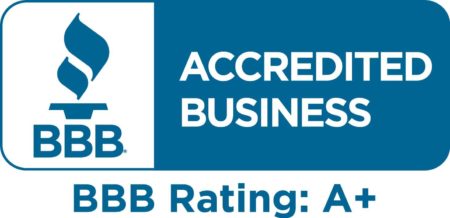
HOW TO INCREASE YOUR SCORE
INCREASE YOUR SCORE
IF YOU HAVE MINIMUM CREDIT
– Sign up for free credit monitoring services such as creditkharma.com or annualcreditreport.com
– Dont miss any more payments, can set up automatic payments
– Keep your open credit accounts under 30% of your maximum allowed balance, or ask for higher credit limit
– Avoid new inquiries on your credit report
– Take out $1,000+ secured credit card
– Start account with https://www.self.inc/ “builder account” website
– Become an Authorized User on Someone Else’s Credit Card
– Buy something on credit over $1,000 (ok to use co-signer)
– Deal with collection accounts, they will settle for a big discount
– Dispute credit report errors by contacting credit bureaus directly
– Rent-reporting services such as Rental Kharma and RentTrack take a bill you are already paying and put it on your credit report, helping to build a positive history of on-time payments.
– Experian Boost offers a way to have your cell phone and utility bills reflected in your credit report with that credit bureau. Note that the effect is limited only to your credit report with Experian — and any credit scores calculated on it.
– keep records of other bills you pay last 12 months, so you can show a mortgage lender you have “alternate credit”
Credit report repair can be considered to be a set of interventions one applies to questionable credit listings in order to manifest an improved credit rating. These interventions are usually conducted by written letter, although — while usually not recommended — some approaches may be attempted by telephone.
Although some consumers think only “send in a credit bureau dispute” when they hear the phrase credit repair, the truth is a bit more complex. Good credit repair comprises a whole range of approaches, many of which don’t even involve the credit bureaus.
Bbe wary of so-called debt settlement companies that may encourage you to stop making payments in an attempt to try to “settle” the debt for less than you owe. Their plan can result in major credit score harm and may not even ultimately work to reduce your debt obligation.
Although an in-depth examination of the full range of available techniques is not intended here, it makes sense to provide a few guidelines for reference. Remember, though, that no collection of simple rules can define every situation. The focus should be…
1. Think FCRA disputes
2. Think FDCPA validation and FCRA disputes.
3. Think FCBA based interventions and FCRA disputes.
Getting started. Probably the most common question asked by those who are new to the subject of consumer credit is “How do I start?”
1. Becoming teachable.
2. Take stock of where you are.
3. Make improving your credit report your new hobby.
4. Take action.
CREDIT REPAIR COMPANIES
These sources will repair your credit in 3 to 6 months. Costs are usually under $1,000, depending on your situation. The vendors listed below are larger companies in the area. Choose any below and contact them directly. We are not affiliated or get any kind of income from any of the companies listed.
LEXINGTON LAW
Sign up online – https://www.lexingtonlaw.com/credit-help
No upfront fee, $99 per month until work completed. Experienced attorneys and paralegals are trained in consumer protection laws, helping you resolve items on your credit report in the fastest and most effective way possible.
CREDEVOLV CREDIT REPAIR
www.credevolv.com
Tiffany Hazelaar – 951-246-7754 – [email protected] – https://www.dcrusa.com/
Our EZ PAY Credit Remediation Program is incredible! During this program, we aggressively dispute all unverifiable or erroneous accounts with Trans Union, Experian, and Equifax. We strategically design an individualized credit dispute campaign using ethical and effective disputing methods. Our Dept of Justice registration requires that we NEVER over promise or illegally guarantee FICO Score predictions. Therefore, in order to keep our program completely transparent, our clients can log on to their secured website portal and track their real-time results monthly as they pay for their program monthly in arrears. This program is a pay-as-you-go program that allows consumers to experience a results driven program. Our analysts will review your credit bureau results monthly in order to provide ongoing coaching all the while updating dispute methods and credit correction strategies in order to help consumers see timely results. $149 to start or add co-applicants / $113 per mos, per person.
CREDIT LAW SOLUTIONS
Jill Bass 818-887-7794 or Michael – 818-294-6886 – [email protected] – http://www.creditlawsolutions.com
Always begins with a free consultation. At Credit Law Solutions our main focus is to provide each of our clients with personal attention, expedited results and a story that can be pleasantly shared with family and friends. We have aided countless Americans nationwide with all their credit repair needs. We found that focusing on specific details and offering comprehensive repair options to clients allowed us to break the generic credit repair mold that other companies offer and helped us become known as the most effective and quickest credit repair company in the nation. Our initial Fee for our Credit Mastery program is $499 which includes the 1st month. Any additional month is $99 dollars per month.
CREDITREPAIR.COM
Call Operator – 855-382-1978 – http://ecreditadvisor.com
We are beyond one-time credit repair; we are dedicated to helping you develop a healthier relationship with your credit. Our focus is on you, your story, and your determination to make a change. We want to empower you to make a significant, long-lasting lifestyle change that can give you access to your financial dreams. Lifetime score improvement is more than just removing negative items on your report – we’ll repair your credit history, and we’ll do it better than the rest – but we’re focused on the story behind that credit score and helping rewrite it to reflect who you are today.
CREDIT LAWS
There is more to credit than the Fair Credit Reporting Act. Most people believe that credit repair begins and ends with the Fair Credit Reporting Act. One must also consider the Fair Credit Billing Act (FCBA) as well as the Fair Debt Collections Practices Act (FDCPA). Together, these three consumer protection statutes define your civil rights as a consumer. Understanding — and even better, exercising and enforcing — those federally guaranteed protections is the absolute best way to transform a poor credit score into a really good one.
*The Fair Credit Reporting Act
FRCA. The Fair Credit Reporting Act is where credit report repair begins. Unfortunately, as I suggested before, some so-called credit repair organizations believe this is where it ends as well. Overly quoted but equally underutilized, the FCRA regulates how credit reporting agencies (in plain talk, the “credit bureaus”) treat consumers. Before this law was enacted and fully implemented in the early 1970s, such bureaus were essentially unregulated and could do just about whatever they wanted. During the pre-FCRA days, for example, one of the nation’s oldest credit bureaus routinely contracted with commercial “greeters,”whose representatives would knock on a new neighbor’s door, make careful notes about their ethnicity, whether anyone smelled of alcohol, whether the family appeared sufficiently employed, subjective notes about perceived stability, and other such things. Following a hearty welcome, a quicker goodbye, and a basket of coupons, such greeters would then write up a little report and send it back to the grand old company. Needless to say, such methods were outlawed by the FCRA, and race, religion, and subjective personal observations could no longer be included within ones credit bureau file. Moreover, consumers were finally allowed access to their credit reports, which up until the FCRA was enacted were practically never disclosed to ordinary citizens who might otherwise suffer financial consequences for
decades due to incorrect and unfair information within those secret files.
FCRA overview:
Ensures that consumers can acquire their consumer credit reports at a reasonable price (or for free under certain
circumstances), and severely restricts “investigative consumer reports” (i.e., friendly ladies bearing coupons and checklists, for example).
Regulates who has “permissible purpose” to acquire a consumer’s report. (You’ll hear credit mavens refer to “permissible
purpose” when discussing INQUIRIES. An inquiry, put simply, is the notation made in a credit file when a potential creditor,
employer, or insurer sneaks a peek at it. Successful small claims court lawsuits have been brought by consumers against those who acquire credit files without a permissible purpose.
Delineates the running reporting periods for information on credit reports — generally 7 years for most items except for
bankruptcy related notations which can remain for 10 years. Keep in mind that these are MAXIMUM LIMITS. The FCRA does not stipulate a MINIMUM amount of time something must remain on a consumer’s credit file. In this respect, the FCRA exists to protect you against something remaining on your report forever, but no law requires that private companies tattletale on you for any minimum length of time at all. To this end, it’s worth remembering that credit reports are certainly not official government documents, and credit bureaus are not officially sanctioned agencies.
Details how a credit bureau must handle consumer complaints. The hyper simplified version: When a consumer disputes a credit file item, the bureau must note within the file that the item is disputed and begin an investigation which must be completed within a “reasonable” amount of time, a community standard which has been almost universally held to be 30 days. The bureau must then inform the consumer of the action that was taken — either verified (the item remains as is), modified (certain aspects of the tradeline have been revised), deleted (the item is removed from the file), or deemed “frivolous” (an awful provision that allows the bureau to basically say you’re not being serious). The consumer may then exercise other rights if desired.
If some of this is beginning to seem complicated, don’t despair. There are experts who can assist. Moreover, a quick Google search (yes, I do enjoy uncompensated commercial plugs) will reveal several discussion boards where consumer law junkies stand ready to answer questions. Unfortunately, this is only a pamphlet, and other Federal statutes beckon.
*Fair Debt Collection Practices Act
FDCPA. Historically, so many collection agencies proved to be such scoundrels (and of course there were exceptions) that the Fair Debt Collection Practices Act was enacted to protect ordinary people from their wiles. Collectors were so cunning that they would sometimes disguise themselves as old friends, or they would take an opposite tack and threaten debtor’s jail, thankfully only an imaginary purgatory for alleged deadbeats. For those reasons and worse, the FDCPA details how collection agencies can and can’t ply their trade.
If it wasn’t for this Federal statute, debt collectors could harass you day and night. They could awaken you by morn, and they could tuck you in at night. They could speak with your neighbors, your boss, your mother, or anybody else. They could lie and insinuate pending legal action. They could even pretend to be some official agency acting on behalf of your creditors.
Hey, wait a minute — they do those things anyway sometimes! So isn’t the FDCPA just a farce? Are we just helplessly held hostage to the whims of these abusive collectors? Unfortunately, too many consumers have resigned themselves to that attitude. Fortunately, the FDCPA allows you to carefully document such abuses and then turn table and take control of such situations. Perhaps even better than that, the FDCPA allows you to demand proof that a collector even owns an alleged debt.
Here we’ll briefly review your federally-guaranteed civil rights as delineated by the FDCPA. In a nutshell, the statute:
Provides behavioral standards for acceptable third-party collections behavior. For example, collection agencies are
prohibited from contacting consumers at “unusual” times, generally considered to be between 9 p.m. and 8 a.m. the following morning. They are prohibited from telephoning or writing to debtors at their place of employment if asked to cease such contacts. If a consumer is known to be represented by an attorney, then all communication must be conducted with such counsel.
Specifies that debt collectors must always include several legal caveats in their dealings with debtors, including such
disclaimers as “This correspondence is an attempt to collect a debt.” Before the FDCPA, collectors might try to weasel and ingratiate themselves into families for days and weeks at a time — for apparently completely unrelated reasons like soliciting for the Boy Scouts and the like — without stating the true purpose of their attempts to forge such relationships. The history of debt collection during the 19th and first two-thirds of the 20th centuries are rife with now-humorous (but not so funny at the time) anecdotes regarding outrageously misleading collection tactics. Such shenanigans are now expressly forbidden. If a CA doesn’t state their purpose right away when communicating with a debtor, whether that communication is written or verbal, then they are violating that consumer’s Federal civil rights.
Prohibits CAs from screaming, threatening or actually employing violence, using profanity, misrepresenting their identity,
or hinting at possible imprisonment. Neither can CAs specifically threaten legal action unless they fully intend to follow suit
expeditiously and then actually do so! As for identity misrepresentation, this includes sending letters that look like official
government correspondence, even if the letter doesn’t specifically spell out “Office of the Sheriff” for example. The FDCPA seeks to protect you against such nefarious tactics.
Allows any consumer to formally request that the CA “cease and desist” from communicating with them. Then the collector is legally obligated to follow suit! Of course, the collector is still free to engage the legal system (lawsuits, judgments, liens, etc.) in
order to collect any outstanding debt, and they may advise the alleged debtor of the steps they intend to take along those lines.
Obligates debt collectors to behave in a certain manner when communicating with others. Specifically, they must identify
themselves by name but are prohibited from identifying their employer or the reason for their call. So, for example, they may say, “Hi, my name is Joe Collector, and I am trying to locate someone named PsychDoc. May I please speak with him? . . . No, I’m sorry, I can’t say specifically the reason for the call as it is confidential, but do you know where or when he might be reached?” However they cannot say, “Hi, I’m with ABC Collections, and I’m trying to reach PsychDoc because he owes Sears twenty-five thousand dollars and nine cents.” Incidentally, collectors call such investigative activity “skip-tracing,” which really provides a glimpse into their demonstrated mentality regarding consumers: People who owe money are, in their world view, trying to “skip” out of paying their debts and are often treated disrespectfully as a result. Ugh.
Specifically details a consumer’s right to request further information regarding an alleged debt. Such procedures are
termed debt validation and are so POWERFUL that we could devote an entire book to the matter. For now, it’s important to simply understand that every consumer has the right to challenge the veracity of any debt; a collector must then respond in a certain way, otherwise the collection activity must CEASE and all related consumer reporting must be RESCINDED. Validation, in fact, can become the central tool in a consumer’s arsenal when confronting aggressive collectors. You can find additional information regarding validation on a number of consumer law discussion boards. And, as I previously mentioned, Lexington Law utilizes FDCPA validation as part of the array of services they offer.
* Fair Credit Billing Act
FCBA. The Fair Credit Billing Act requires creditors to bill correctly and completely, and it’s the FTC’s job to make sure that the statute is universally applied. As you read the list of requirements the FCBA stipulates, just consider the credit repair possibilities. The FTC summarizes the statute’s prohibitions as follows: “unauthorized charges; charges that list the wrong date or amount; charges for goods and services you didn’t accept or weren’t delivered as agreed; math errors; failure to post payments and other credits, such as returns; failure to send bills to your current address — provided the creditor receives your change of address, in writing, at least 20 days before the billing period ends; and charges for which you ask for an explanation or written proof of purchase along with a claimed error or request for clarification.”
Even better, while original creditors aren’t bound by the FDCPA (which, to review, applies to collection agencies), they are similarly bound by the FCBA. Case law (example: Nelson v. Chase Manhattan) obligates original creditors to assume responsibility for incorrect reporting and for the illegal activities of affiliated third-party debt collectors. If that isn’t a credit report repair bonanza, then I don’t know what is. Again, further explication is beyond this introductory article’s horizon, but additional information and assistance is available on internet discussion boards frequented by credit addicts, from your local attorney, or from affordable consumer law firms.
GRAND AVENUE REALTY & LENDING
One of the fastest growing companies in America





